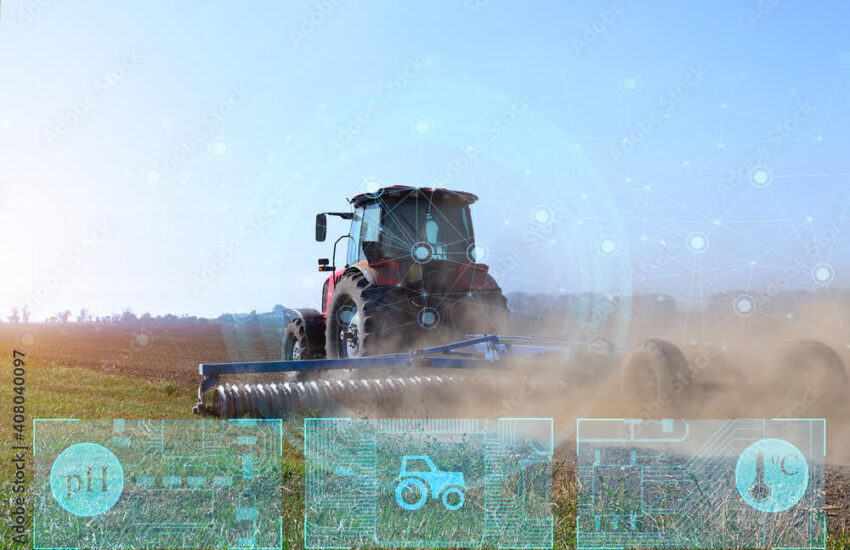4 Autonomous Technologies with Startup Involvement
Autonomous technologies are ones where AI-supported devices can successfully perform tasks without human intervention. These technological systems continue to transform critical tasks like cross-country shipping and disinfecting hospital rooms, for example, and are becoming more important than ever. In fact, Gartner identified autonomic systems as one of the top strategic technology trends for 2022. At Iterate.ai, we believe in startups and their ability to improve R&D for large organizations. Startups are heavily involved in the autonomous technology space and we want to highlight them below. Let’s look at how startups are participating in the development of 4 different kinds of autonomous technologies.
Startups involved with current Autonomous Technologies
- Autonomous Vehicles
Autonomous vehicles are no longer futuristic, they are a very present-day technological advancement. Self-driving cars have various uses, from personal and family usage, to public transportation benefits, and even carpooling and ridesharing. When most people think of autonomous technologies, they envision a Tesla vehicle self-driving a passenger. Though that is an accurate representation of autonomous technology, that is just one example of a company dedicated to the development and production of autonomous vehicles. There are also a myriad of startups working to make autonomous vehicles accessible and safe for the general public. Let’s take a look at two prominent US based startups working towards transforming public use of autonomous vehicles.
- Cruise
Cruise is a San Francisco based autonomous vehicle company founded in 2013 that has built self-driving cars that can see, think, and act. Cruise cars, also known as Cruise AVs, have sensors that can detect people and objects with 360° accuracy, make a decision about changing lanes, and appropriately complete turns and acceleration, for example. Cruise is confident that with their autonomous technology, streets will be safer, air will be cleaner, and access to transportation will increase.
- Argo AI
Argo AI is a Pittsburgh based company that builds self-driving products and services. Their culture of safety and partnerships with Lyft and Ford is what sets them apart by reimagining the human journey. Their Argo Autonomy Platform includes HD maps, hardware, software, and backend support needed to power full-service, self-driving operations at scale. As of now, they have one vehicle used for commercial services here in the US that relies on sensors and computers to enable autonomous operations.
- Autonomous Farming
The US has been facing farming labor shortages for a while now, and in 2022 alone, there has been a 52% decrease in hired farmworkers. Technological advancements in farming, such as with autonomous systems, can remedy and solve for shortages that impact our economy directly. In fact, market forecasts expect the autonomous farming industry to exceed $95 billion by 2027. Using autonomous farming technologies allows for more sustainable farming practices and increases productivity, to name a few benefits. We are seeing the transition to autonomous farming happen with prominent American corporations, like how John Deere revealed their fully autonomous tractor this year, but startups are also innovating technologies for the farming industry.
- FarmDroid
Founded in 2018, Danish startup FarmDroid, offers the world’s first fully autonomous, solar-powered robot that provides sowing and weed control services. FarmDroid claims that their FD20 robot benefits the farming industry by increasing crop yield and having a payback period as low as 2 years.
- Nexus Robotics
Canadian startup, Nexus Robotics, has similar features to FarmDroid’s robot in that it also removes weeds autonomously. Their prototype, known as La Chevre, is capable of removing weeds from various crops 24/7 with 100% autonomy. La Chevre uses a neural network to accurately differentiate between weeds and crops without causing any damage to the crops, thus increasing efficiency and creating more time for farmers to focus on other tasks.
- FarmWise
FarmWise, a San Francisco based startup, uses AI algorithms, including machine learning, to automate basic farming techniques and increase food production efficiency. Their Titan FT35 model has all the hardware needed to successfully perform with different soil types, growth stages, and crops, paired with autonomous technology that allows for the work to be done without human intervention.
- Autonomous Sanitization
During the height of the COVID-19 pandemic, engineering and programming hygienic robots to autonomously sanitize public spaces became mission critical. Now, many hospitals, airlines, and malls have adopted the use of autonomous sanitization robots as a common practice. Though the technology hasn’t reached a place where all human staff can be replaced by robots, autonomous sanitization technology offers safer, cost effective, and time efficient benefits that exceed what we had prior to this technology.
- Doozy Robotics
Doozy Robotics, a Singaporian startup, specializes in AI powered humanoid and autonomous robots for both commercial and industrial use. Specifically, Doozy Robotics’ DUV A-20 model autonomously emits concentrated UV-C light onto infectious hotspots, reducing infection rates and overall operating costs. This autonomous system claims to sanitize and sterilize all surfaces, including hard-to-reach areas, and the air that is in that room in just 10 minutes.
- Akara.ai
Akara.ai is an Irish startup whose mission is to modernize public health using technology. Their specific sanitization robot, Violet, uses UV-C light to disinfect crowded, hard-to-clean spaces like bathrooms, waiting areas, and the nooks and crannies of public transportation. Akara.ai has proven that their autonomous system is able to sanitize a standard space in 15 minutes, a fourfold increase compared to standard disinfecting practices.
- Autonomous Freight Shipping
Freight shipping as a technology hasn’t really changed since trains were first introduced centuries ago. Recently, however, companies and former SpaceX engineers alike are looking to completely transform the freight industry using autonomous technology. Autonomous freight trains and trucks support shipping by being more energy-efficient, and more able to detect hazards compared to standard freight shipping. Let’s look at some startups that are working to make autonomous freight shipping a practical part of the shipment industry.
- Parallel Systems
Parallel Systems is a Los Angeles based startup that has been developing fully autonomous, battery-electric rail vehicles for transporting standard shipping containers. This startup prides itself on using 25% of energy emissions that a standard freight train uses, having a 500 mile range, and for being incredibly scalable to today’s existing railroad infrastructure.
- Solo AVT
Also in California, Solo AVT is a Freemont based startup revolutionizing the freight transportation industry. Their SD1 model is a class 8 truck that is fully autonomous (with no drivers’ seats even designed within the model) and uses both battery-electric technology, and aerospace-level systems to achieve the autonomous technology. Solo AVT rethinks every facet of their trucks, maximizing efficiency and safety at all times.
- Plus
Plus is another California startup headquartered specifically in Silicon Valley. Their mission is to be the leading self-driving truck company to offer safer, cheaper and eco-friendlier long-haul trucking solutions. Their PlusDrive technology offers closed-loop learning systems so that their autonomous trucks are scaled for learning. PlusDrive can be installed on an existing freight truck, or on brand new trucks, making their technology accessible to the entire freight industry.
Autonomous Technologies are good for Business
Autonomous technologies are here to stay, and at Iterate.ai, we believe that businesses should consider how this technology can be beneficial to your company. All industries regard efficiency as a top priority, and autonomous technology absolutely guarantees operational optimization. Also, industry-specific standards of safety are always at the forefront of companies’ operations. As we learned with autonomous vehicles and autonomous sanitization, using autonomous technologies in these fields removes the possibility of human error and improves safety exponentially. With regard to sustainability and environmentally-friendlier practices, autonomous technologies offer eco-centered solutions. With just the autonomous vehicle industry alone, greenhouse gas emissions can be significantly reduced. There are very impactful real-word examples of why autonomous technologies are good for businesses, and for everyone involved. AI technology, used to program autonomous technology, is truly transforming critical tasks that industries must continue to perform. We want to help bring these technologies and ideas to your business, please visit us here for more information.

